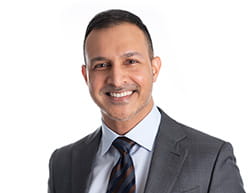It is one of the building blocks of mature economies, and in January 2018 the member states of the Gulf Cooperation Council will begin the process of introducing value-added tax to the region.
After agreeing to the radical policy shift at the end of 2015, the United Arab Emirates and Saudi Arabia now look poised to introduce VAT at the start of next year, while the other four member states – Kuwait, Bahrain, Oman and Qatar – will likely do so later in 2018. Motivated by the need to shore up state finances under pressure from low oil prices, the move will see a 5 percent tax added to the sale of goods and services, and will represent the first time the states have imposed taxes on their citizens.
Abdul-Haq Mohammed, International Managing Partner at Trowers & Hamlins, based in Bahrain, says the introduction of VAT marks the latest sign of the maturing of the economies of the Middle East: "When you look at mature markets around the world," he says, "sometimes things like tax are what drives an audit trail and level of transparency that means people have to take the way they set out their arrangements more seriously. You can no longer do a deal on the back of an envelope – this feels like a game- changer."
The UAE has now started registering businesses for VAT and has been issuing a number of regulations on the tax in the lead-up to January 2018. Firms with annual revenues of at least $100,000 must register or face fines. It is estimated that more than 300,000 companies will need to come forward.
"The introduction of VAT means people’s relationships with government are changing, and is another move away from the region’s status as a tax-free haven," says Mohammed. "As soon as you have VAT, everyone has to file records, you have to have tax authorities, and you have so much data that it forces a degree of transparency. This will have an impact on the whole business environment, because it should give people investing from outside much more clarity about their investments, and comfort that they should be able to deal with local counterparties with greater certainty."
While the details are still being ironed out, it looks like VAT in the GCC will be pretty far-reaching, applying to most goods and services, with the exception of healthcare, education, social services and a select number of food items. The tax imposed will be the responsibility of a taxable person who makes taxable supplies or what is deemed to be a supply or an import.
While the VAT tax rate of 5 percent is one of the lowest rates in the world, countries that have introduced VAT at such low rates in the past have historically quickly moved on to a 10 percent rate.
How long it will take the other Gulf states to follow in the footsteps of UAE and Saudi Arabia with implementation of VAT remains to be seen. "Bahrain is likely to introduce it in the middle of next year," says Nick Green, a Corporate Partner with the firm in Bahrain. "It seems that they will wait and see how things go in Saudi and the UAE. It is not yet clear what the timetable will be for Oman, Qatar and Kuwait."
While all six countries agreed in 2015 to introduce the tax by the end of 2018, they need to introduce domestic legislation before they can do that, and all are moving at different speeds, with different motivations.
"The original idea was that everyone will introduce this on 1 January 2018," says Green. "We all thought that was quite an aggressive timetable, particularly for those states that were not so keen. Saudi and UAE have always been leading this, because of the new revenue stream it offers their national economies, and because it will help modernise their economies. Bahrain might want to wait and take advantage of some arbitrage whereby Saudis will come across the border and pick up big-ticket items in Bahrain for a while."
Since the region agreed to implement the tax, Saudi Arabia, the UAE and Bahrain have cut diplomatic and transport ties with Qatar, which could affect Qatar’s timetable for introducing VAT. Meanwhile Kuwait’s parliament is yet to have the final say on approving or rejecting draft legislation on the tax, and Oman has yet to announce its plans.
As the tax arrives, there is lot of work for businesses in the region to do. Mohammed says: "There’s a whole exercise for people of upgrading their systems and their arrangements across the board. Everything needs to be looked at because old systems will no longer work. There will need to be VAT clauses in contracts and efforts to create VAT efficiencies throughout corporate groups – this requires all our clients to look closely at their frameworks, systems and contracts."
Smaller businesses may not currently keep paper records of transactions, and will now have to set up the appropriate mechanisms to do that, and to collect monies and pay taxes to the government.
Green says: "The current timetable gives every business in the UAE two months to get registered, get systems in place, hire staff and train existing staff in a system that’s entirely brand new to the region."
International businesses may find themselves at an advantage, according to Bill Jefferies, a Corporate Partner based in the UAE. He says: "The international businesses will already, to a large degree, have systems in place to deal with tax and VAT, particularly across multiple jurisdictions. Meanwhile, local businesses may not have a clue where to start, so there’s a very clear difference."
The implications for the way people operate are potentially significant. Mohammed says: "This is about creating a more transparent business environment, albeit driven by the primary motivation of revenue generation in the UAE and Saudi.
It will have an impact, because people need to document things, keep records, take professional advice, think about the implications of getting things wrong from a tax perspective, and organise their structures to derive tax benefits. Businesses in this region have never had to think before about how to make deals tax efficient, so that’s a big change."
Green concludes: "Some big family businesses in the Middle East have informal group structures and aren’t necessarily owned in a coherent manner. For the first time, clients are now having to think about maybe reorganising their groups and structuring them properly. Tax structuring will become a primary driver for the way that groups are established going forward, in the same way that it is in more developed markets around the world."
While ostensibly a revenue generation measure being driven by low oil prices, the arrival of VAT in the Gulf is clearly the next step in the coming of age of the region’s economies.

